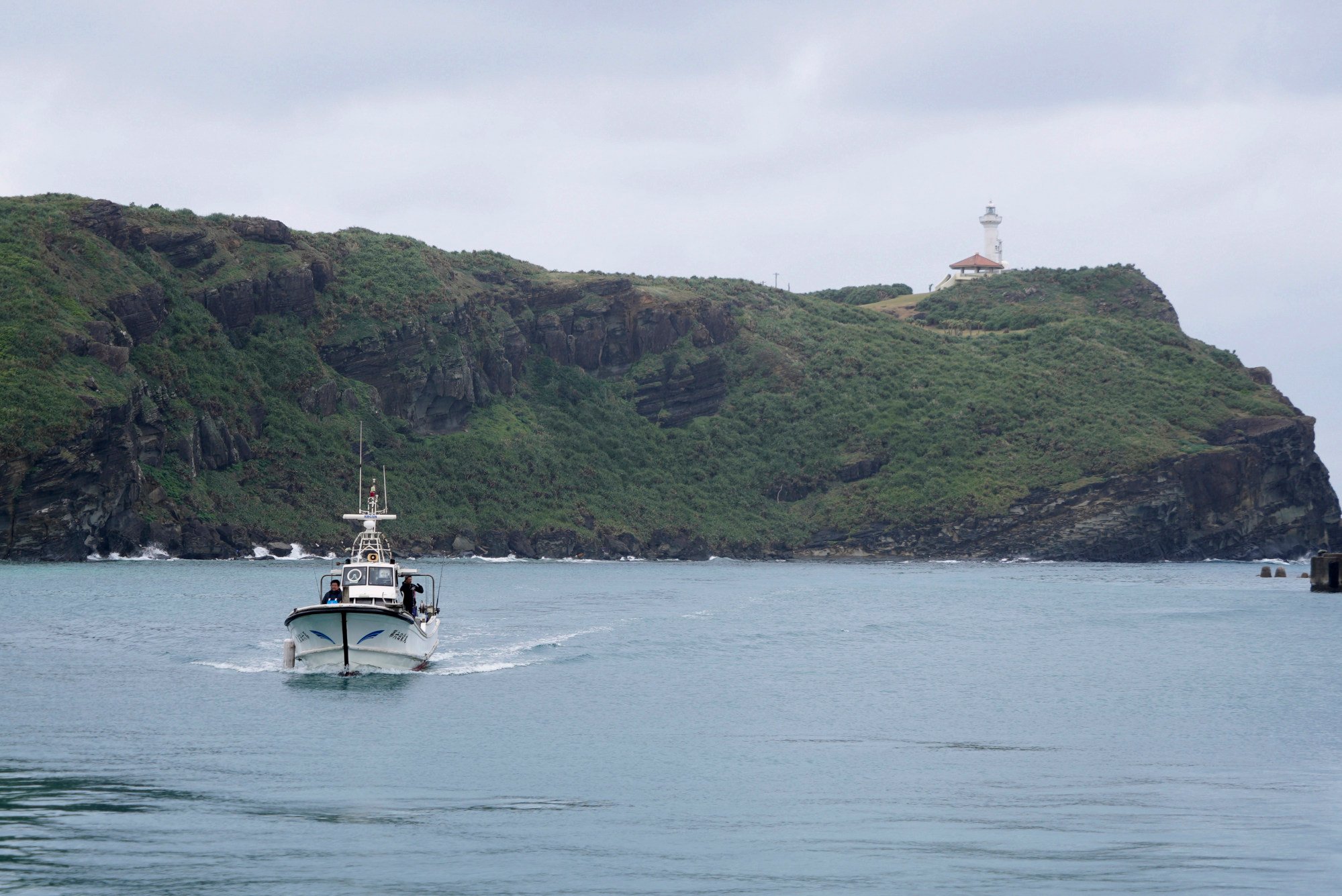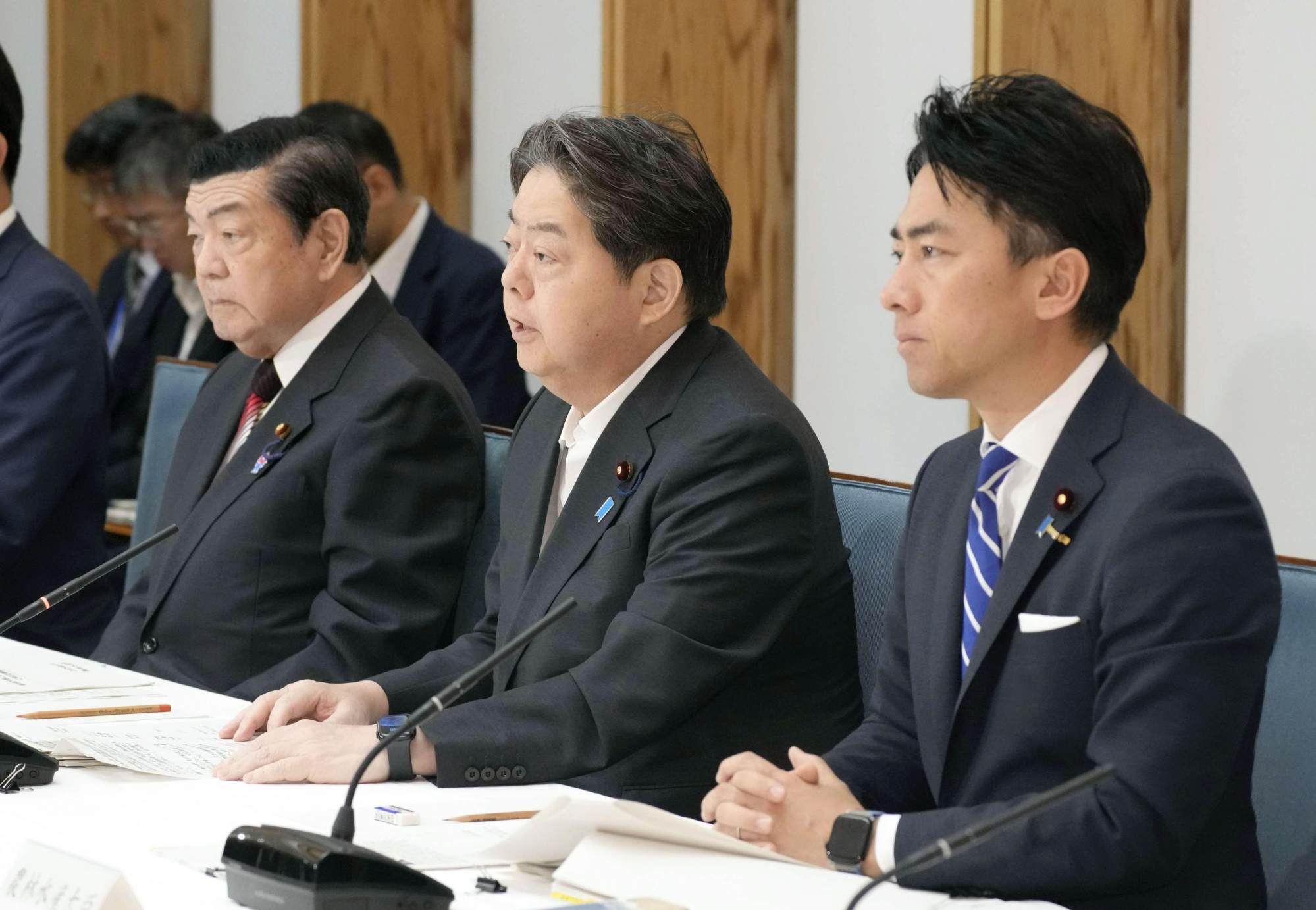Recently, Beijing has taken down contentious maritime buoys, relaxed a politically sensitive seafood import restriction, and seemed to soften its aggressive stance.
China
Has recently undertaken a series of nuanced gestures toward Japan, such as dismantling contentious maritime markers and loosening a restrictive fish imports embargo, which analysts interpret as a strategic adjustment rather than an overhaul in their relationship dynamics.
On Thursday,
Japan
The government stated that China has removed the second of two oceanographic buoys it had deployed without permission from Tokyo inside Japan’s exclusive economic zone close to Okinawa.
The next day, it was reported that the two countries’ administrations had come to an understanding regarding the protocols for restarting the exportation of seafood items from much of Japan to China. This development came 22 months after Beijing had implemented a comprehensive embargo on such imports when Japan initiated the process of releasing processed waters near their coast.
Fukushima nuclear power plant
into the Pacific Ocean.
Are you looking for insights into the most significant issues and developments globally? Find your answers here.
SCMP Knowledge
Our latest platform features handpicked content including explainers, FAQs, analyses, and infographics, all provided by our acclaimed team.
China seemed to soften its stance during the president’s tenure.
Xi Jinping
‘ meeting with his Russian peer
Vladimir Putin
earlier this month. A joint statement issued on May 8 emphasised expanded military cooperation, including regular joint air and sea patrols, but omitted a reference to securing “Northeast Asia” – reportedly at Beijing’s request – to avoid provoking Tokyo.
Masayuki Masuda, who directs Chinese studies at the Ministry of Defence’s National Institute for Defence Studies in Tokyo, stated: ‘I view this as China delivering a clear message to Tokyo, indicating its desire to stabilize their relationship due to several factors.’
“Initially, Beijing is engaged in tariff discussions with the United States, and the outcome of these talks remains uncertain; however, China may not be in a particularly advantageous position,” he explained to This Week in Asia.
“Secondly, China thinks that the current U.S. administration may not adhere to the same alliance strategies as previous ones in the Indo-Pacific and beyond, suggesting that they could exploit potential weaknesses in the security partnership between Tokyo and Washington,” according to Masuda.
Are there any disagreements regarding security matters?
US
And its allies might be used by China to undermine Washington’s influence in the area, he further noted.
Beijing’s actions occur as the US Secretary of Defense
Pete Hegseth is currently in Singapore.
For the three-day Shangri-La Dialogue starting this Friday, the main objective is to reassure regional partners of Washington’s continued dedication to the area.
“I anticipate that Hegseth will discuss with his peers the significance of robust partnerships in the Pacific region,” Masuda stated. “He might highlight the U.S., Japanese, and Filipino trilateral alliance as an exemplary model for this.” However, Masuda added, “This is precisely the kind of alliance that China would prefer neither to grow nor become more powerful.”
Although certain people think that softer actions from Beijing might come next – such as releasing Japanese businesspeople imprisoned for alleged spying or increasing trade and cultural interactions – others caution against reading too much into these latest changes.
Tokyo has consistently asked China to remove its comprehensive ban on Japanese seafood imports, and seems to have convinced Beijing about the safety of releasing treated water from the Fukushima nuclear plant following visits by Chinese inspectors to monitor the facility. Nonetheless, marine goods originating from Fukushima and nine additional affected regions continue to be barred under this new arrangement.

Masuda proposes that taking away the two buoys located in the East China Sea within Japanese territorial waters – one situated south of Yonaguni Island at the southernmost tip of Okinawa Prefecture, and another about 80 kilometers northwest of the contested Diaoyu Islands, known as the Senkakus to Japan – might not represent as significant a compromise as many think.
“The buoys were deployed to collect data on underwater conditions in those regions, and I think they were taken out since they finished their scientific studies,” Masuda stated.
The devices had a diameter of approximately 5 meters and featured the phrase “China ocean observation.” However, experts suggest these may be employed for monitoring ocean depth, currents, and temperature—factors crucial for submarine activities within the island chains confining China’s naval forces to their coastal regions.
According to Masuda, Beijing must keep in mind that it should not offer too many extensive concessions to Japan this year, which marks the 80th anniversary of the end of World War II and the conclusion of Japan’s occupation of significant portions of Chinese territory.
The leadership in China finds itself torn between outward gestures and their internal constituency, particularly during this anniversary year when appearing overly amicable towards Japan might provoke an adverse reaction domestically,” he explained. “In my view, such alterations appear strategic, insignificant, and probably fleeting.
He indicated that Beijing’s fundamental animosity persisted, noting that the number of Chinese coast guard ships in Japan’s territorial waters near the contested Diaoyu Islands has not decreased. In fact, activities in both air and maritime domains seem to be intensifying.
More Articles from SCMP
China’s intelligent city advancements lead globally, yet faces similar AI issues universally.
Manchester United conclude their Asian tour on an upbeat note in Hong Kong
Who is Jude Law’s psychologist spouse Phillipa Coan? Based in London, she specializes in behavior modification and operates her own firm. She met the actor through common acquaintances at a literature festival.
The Shangri-La Dialogue: France’s Macron cautions that consistency in condemning warfare is crucial for maintaining credibility.
The article initially appeared on the South China Morning Post (www.scmp.com), which serves as the premier source of news covering China and Asia.
Copyright © 2025. South ChinaMorning Post Publishers Ltd. All rights reserved.







